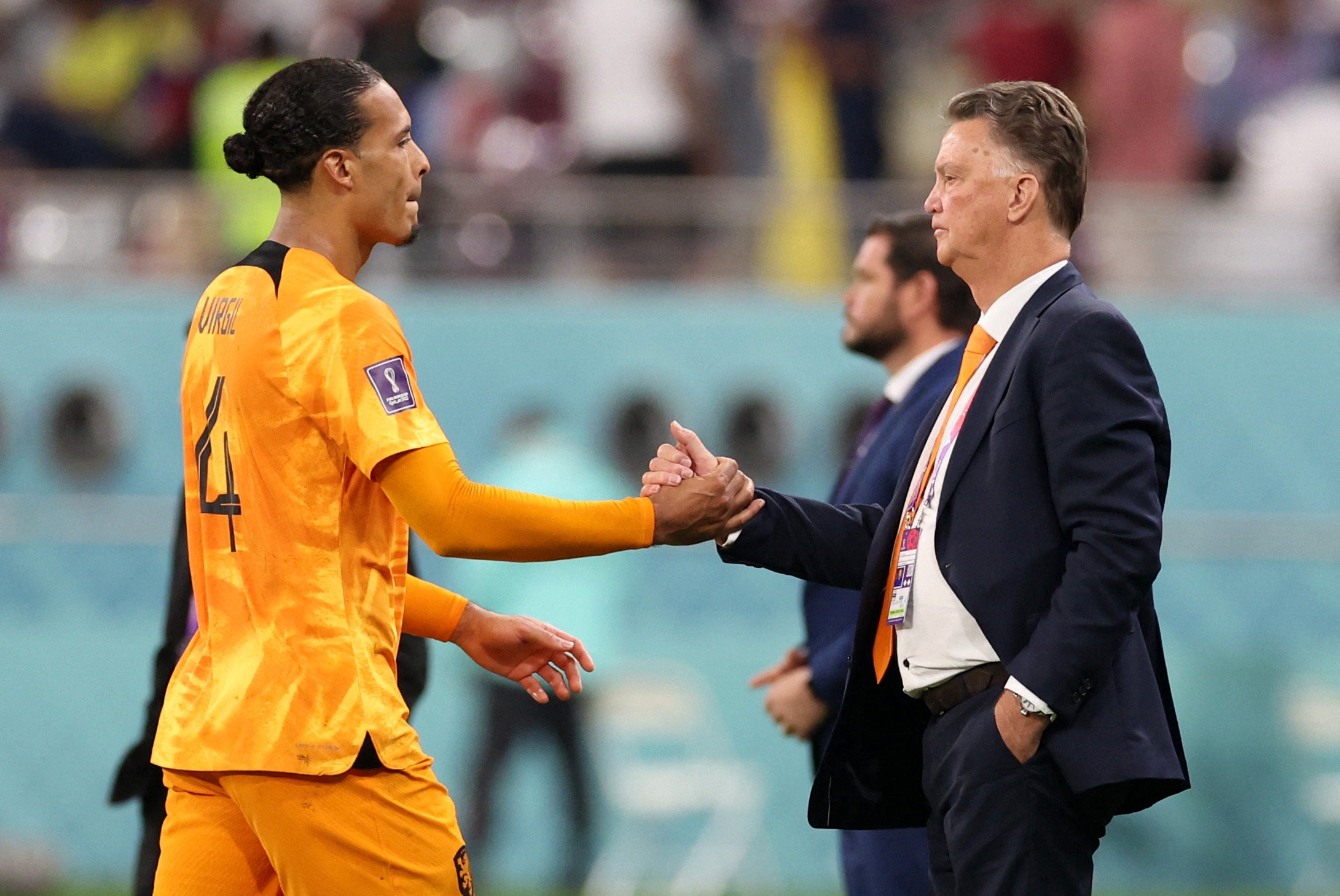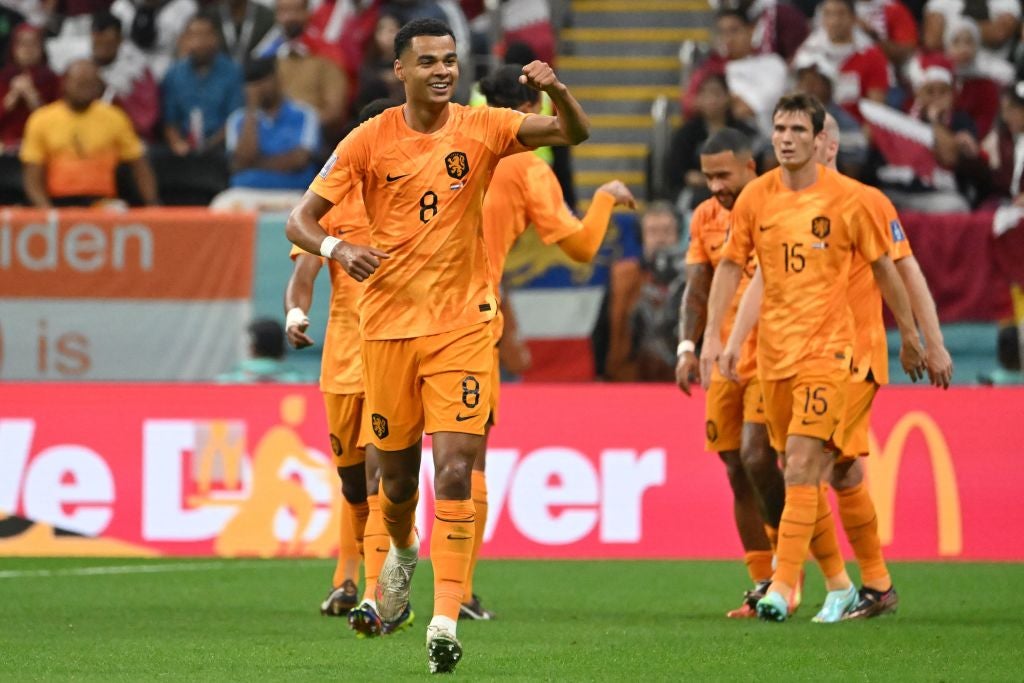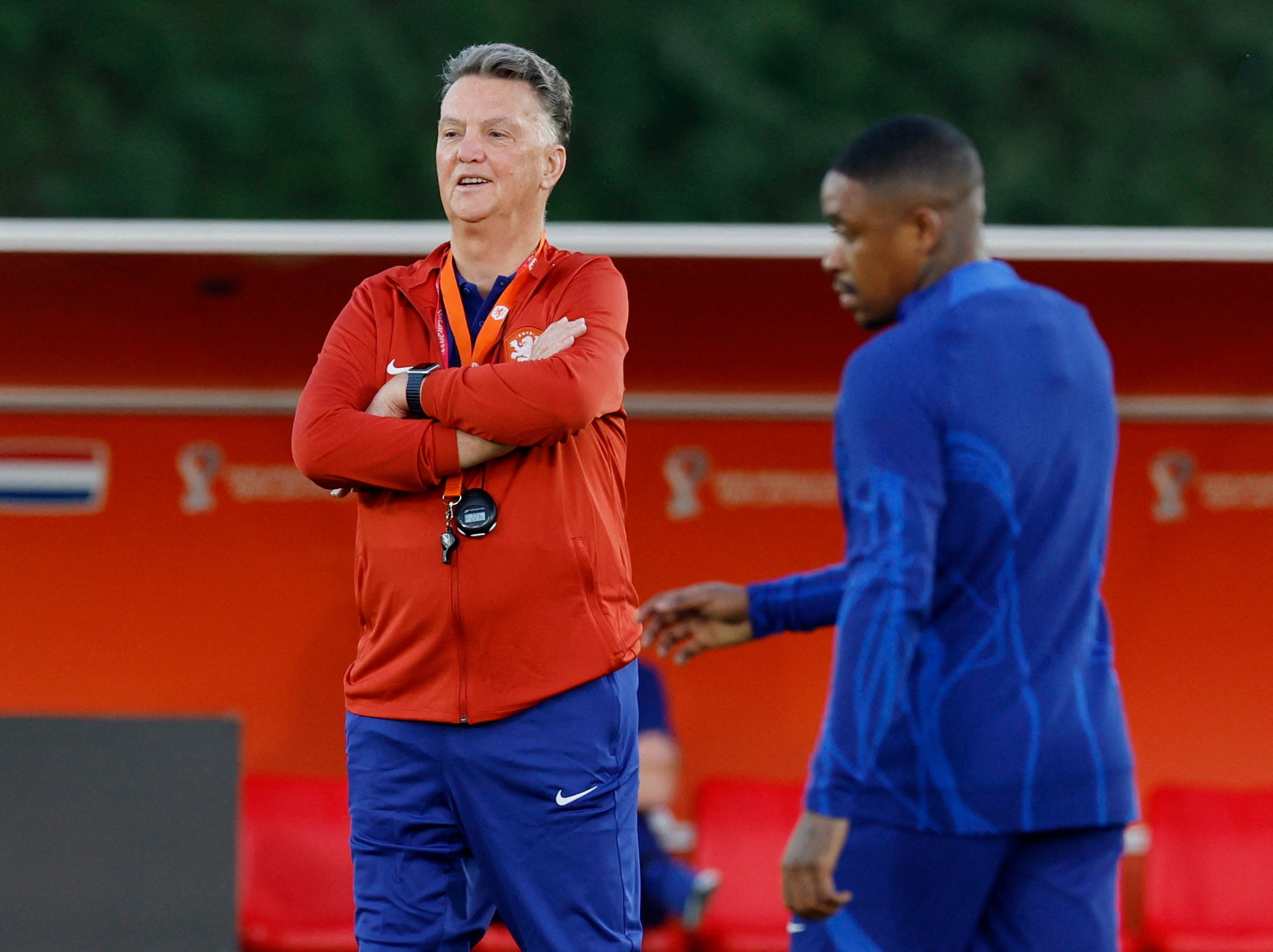
Even at 71, Louis van Gaal has unfinished business. An epic career has entered extra time but even if it brings a crowning glory, Van Gaal could extend it further. Lose and Saturday’s match against the United States will be the final game of his third spell in charge of his native Netherlands. Win and he will have an added allure to suitors.
He has been touted as a possible successor to Roberto Martinez, who resigned as Belgium manager after their early exit. In typically direct fashion, Van Gaal flirted with the idea, citing his wins over the world’s second-ranked team in the Nations League and adding an idiosyncratic flavour to his answer.
“Belgium is a wonderful country with really friendly people and Knokke is a wonderful beach town,” Van Gaal said. “You have to convince my wife. No, I am joking, I am always at liberty to take decisions myself but there are certain countries I won’t move to and my wife Truus won’t move to.”
All of which felt typical Van Gaal. He may be the most eccentric and the most immodest manager at the World Cup. While others conceal their ambition, he advertises his. Holland have rarely performed like potential winners in the group stages but Van Gaal is bullish in his belief they can emerge triumphant.
“We want to become world champions and we have four matches ahead of us and then we will see what opportunities are ahead of us,” he said. “If we do become world champions, everyone is so opportunistic in this football world there will be offers and if I have to listen to the Dutch media, we will never be champions.”
And, however his current crop fare, he thinks that a team of his should have the status of World Cup winners. “In 2014 we were the best squad but lost because of penalties,” he said, citing a semi-final setback.
That campaign began with a 5-1 evisceration of Spain. Yet that team, like this, has not played in the Dutch traditions. It does not always go down well in a country where style of play matters.

Van Gaal began as a Cruyffian, playing 4-3-3, a byword for attacking. He has gone from purist to pragmatist, from the Ajax adventurer to the Netherlands manager his compatriots criticise for his cautious style of play. He explained his own transformation since the 1990s and since his flagship achievement of winning the Champions League.
“At the time, I was completely built of Ajax DNA,” he explained. “You have to attack and do that with your wingers and that was easy because youth training was focused on that, there were enough players that would evolve and they didn’t we could buy them and we bought the wingers [Marc] Overmars and Finidi [George] and it was all about attacking, nothing else.”
Now Holland play without wingers and Van Gaal added: “But over the years you evaluate the playing style and the risks attached and I applied the lessons learned. This has got to do with the qualities of your players and your opponents and the vision and slowly that evolved into a less attacking style and more a style of winning.”

A turning point, he said, was when his Barcelona side went 3-0 up against Valencia in 1998 and lost 4-3; that one of his scorers that day, Luis Enrique, is now Spain manager and a potential opponent in the final is another indication of his longevity. He is already the second oldest manager in World Cup history; go all the way and he will displace Oscar Tabarez in second.
To do that, the Netherlands will have to improve. Van Gaal believes his side have been good off the ball, less so on it. “I would say we started off with a squad with lots of people who were not yet fit enough: perhaps medically fit but not match fit,” he added. Now Memphis Depay may be ready to play 90 minutes for the first time, while Cody Gakpo has scored in every game.

He expects a tough game. “I think USA are an example of what a team needs to be,” he added. “I think there are also examples of teams who have progressed who are not a good team but have good individual qualities.”
He has encountered his United States counterpart before, when Gregg Berhalter played for a Sparta Rotterdam team who beat his Ajax. “In which year was that, 97? And do you really think I remember that I played? No, I was a coach,” he said; it was not entirely clear whether he had deliberately misunderstood the question. Irascible to the last, his reply to one query was: “Rubbish. I can elaborate on that but it is rubbish.”
Having revisited his Ajax and Barcelona days and his second spell in charge of Holland, his thoughts turned to the next four games, and what comes after that. “I don’t live in the past, I live in the present and the future,” he claimed. “And now I might be making plans for Belgium, for instance.”







